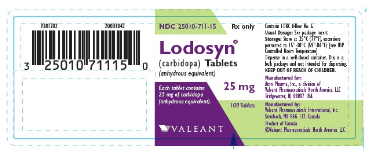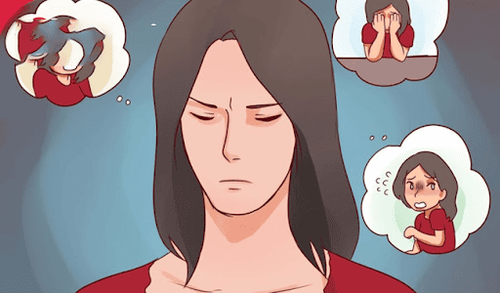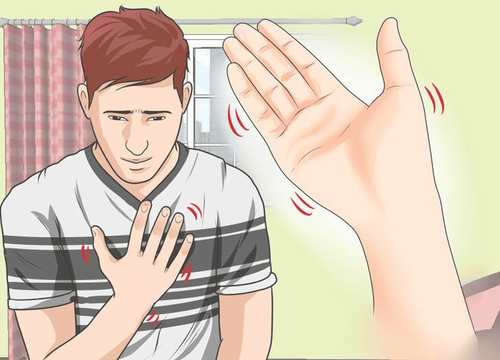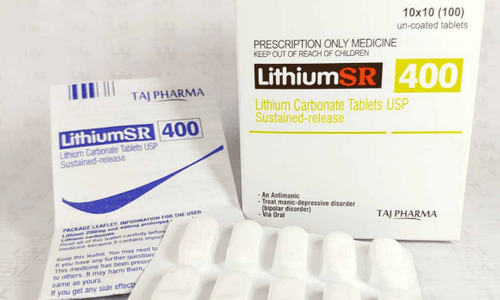This is an automatically translated article.
It's normal to feel agitated from time to time, such as in the face of stress from work or study. But if you're very excitable for no reason, this could be a sign of an underlying mental health condition or medical condition.1. What is agitation?
Agitation is discomfort or restlessness caused by provocation or, in some cases, little or no provocation.It is normal to feel agitated from time to time, such as in the face of stress from work or study. But sometimes it can be a sign of an underlying mental health or medical condition.
If you are frequently or very irritable for no apparent reason, make an appointment with your doctor. They can help find the cause and the specific treatment options.
2. What causes excitability?
Excitement is a normal emotion experienced by most people. In the majority of cases, there is no need to worry or bother.Common causes of agitation include:
Stressful Situations School stress Feeling sick Exhaustion Pressure Stress Sadness. Medical conditions that may trigger include:
Psychological disorders such as anxiety, depression or bipolar disorder Conditions that cause hormonal imbalances, such as hypothyroidism Alcoholism or withdrawal Autism-suggestion Neurological disorders (in rare cases, brain tumors) If you frequently feel agitated for no apparent reason, make an appointment with your doctor. An underlying physical or mental health condition can negatively affect your mood. Your doctor can help determine the cause of your agitation and prescribe treatment if needed.

Rối loạn tâm lý có thể là nguyên nhân khiến bạn dễ bị kích động
3. How is the cause of agitation diagnosed?
To determine the underlying cause of your excitability, your doctor will likely start by asking you questions about your medical history and lifestyle, along with other symptoms you may be experiencing.If they suspect that you have an underlying mental health condition, they may refer you to a mental health professional for evaluation.
If they think you have an underlying physical condition, they may run one or more diagnostic tests. For example, they may:
Collect a sample of your blood to check for hormonal imbalances Collect a sample of your urine or spinal fluid to check for abnormalities In some cases, they may order a CT scan or an MRI of your brain.
4. How to treat the cause of agitation?
Your doctor's recommended treatment plan will depend on the cause of your agitation.4.1. Mental stress To reduce agitation caused by stress, your doctor may recommend a variety of relaxation techniques, including:
Yoga deep breathing exercises Other meditative practices Deep breathing and meditation can can help restore a sense of calm. Exercising and participating in activities you enjoy can also reduce stress.
Your doctor may also refer you to a psychotherapist if these techniques do not provide relief.
You should also take steps to identify and limit your exposure to things that stress you out. For example, if you feel overwhelmed by your workload, discuss it with your supervisor or teacher.
4.2. Mental health conditions If you're diagnosed with an anxiety disorder or a mental health disorder, your doctor may recommend medication, talk therapy, or a combination of both.
In a typical therapy session, you will discuss your symptoms and develop strategies for dealing with them.
4.3. Hormonal imbalance If you're diagnosed with a condition that affects your hormones, your doctor may prescribe hormone replacement therapy or other medications to treat it. They may also refer you to a hormone specialist, called an endocrinologist.
4.4. Brain Tumor If you've been diagnosed with a brain tumor, your suggested treatment plan will depend on its type, size, and location.
In some cases, your doctor may recommend chemotherapy to shrink it. If it can be safely removed with surgery, they may refer you to a surgeon for the procedure. If it is too difficult or dangerous to remove, your doctor may simply monitor the growth for changes.

Yoga giúp bạn giảm bớt sự kích động do căng thẳng
5. Prognosis of your agitation
Your prognosis will depend on the underlying cause of your agitation and the steps you take to treat it.In many cases, taking steps to reduce stress can reduce agitation. In other cases, you may need medication or other treatments temporarily or continuously.
Ask your doctor for more information about your specific condition, treatment options, and long-term prognosis.
Please dial HOTLINE for more information or register for an appointment HERE. Download MyVinmec app to make appointments faster and to manage your bookings easily.













